Words from the wise
Business professionals seldom have time to sit down with a good book, but plenty of wisdom that can be gleaned from authors who have “been there, done that.”
A look down the business section of any bookstore shows that there’s no shortage of advice. Use the keyword “business” for books at Amazon.com and more than 2 million matches appear. So how do you separate the wheat from the chaff — what’s a good book about business?
Professors and instructors at Stephens College, Columbia College, William Woods University and the University of Missouri Trulaske College of Business provide their choices for worthwhile reads.
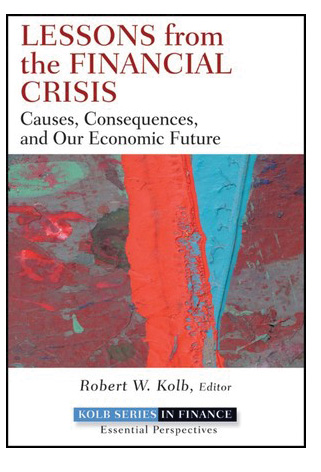 W. D. Allen,
W. D. Allen,
University of Missouri Trulaske
College of Business
assistant teaching professor of finance
“Lessons from the Financial Crisis” by Robert W. Kolb is a collection of about 80 essays, and a really deep-in-the-weeds examination of our current economic situation, causes and solutions. It is a very useful book in forming your own opinion.
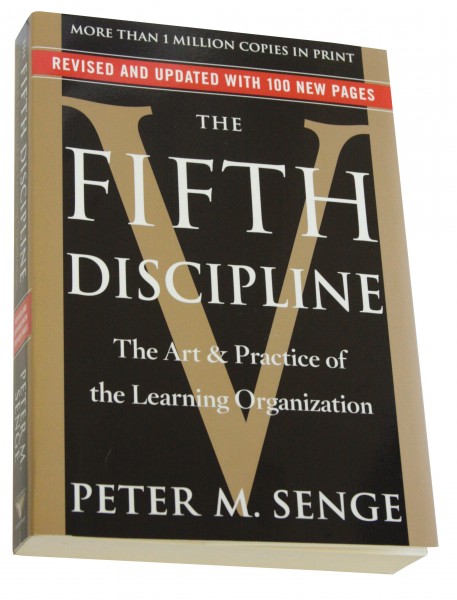 Susan M. Bartel,
Susan M. Bartel,
Stephens College
department chair of graduate business programs,
associate professor of business and marketing
“The Fifth Discipline,” by Peter Senge, has influenced my work in a number of ways. Senge made popular the idea of a learning organization and leveraging people’s ability to re-imagine and expand organizational capacity. Many of us tend to address the problems of the moment rather than examining the total organizational system. The author challenges us to confront hidden assumptions and beliefs that limit our ability to view things in different ways.
While everyone has the capacity to learn, the organizations in which we work are often not conducive and may lack the structure, environment and tools to make sense of the situations we face. Organizations that are innovative and have the ability to change have the best chance for survival, but require a fundamental shift of mind among their employees and leaders. Senge provides a framework on how to turn a stale organization into one that is learning and thriving.
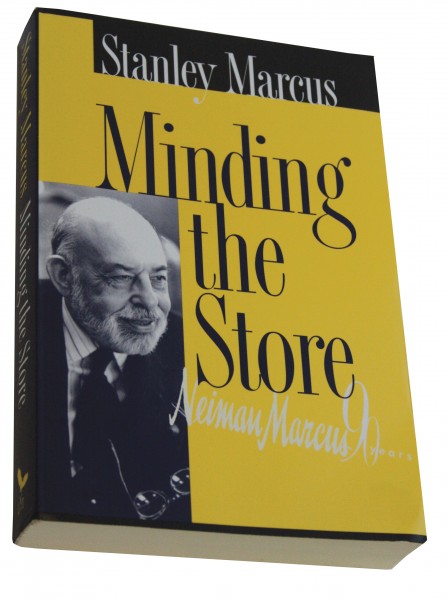 Courtney Cothren,
Courtney Cothren,
Stephens College School of Design & Fashion
assistant professor, fashion marketing and management coordinator,
marketing and management coordinator
“Minding the Store,” by Stanley Marcus was originally published in 1974, but its implications remain important today. The author is the son of Herbert Marcus, who was one of the founders of Neiman Marcus department stores.
This book not only narrates the story of the company’s founding and growth but also illustrates the principles that set the company apart from its competitors. The retail industry has changed greatly since the time the book was written, but the principles of customer service, merchandise quality and promotions are timeless.
Herbert Marcus was a true merchant in every sense of the word, and anyone with a passion for retail can learn a lot from reading his story.
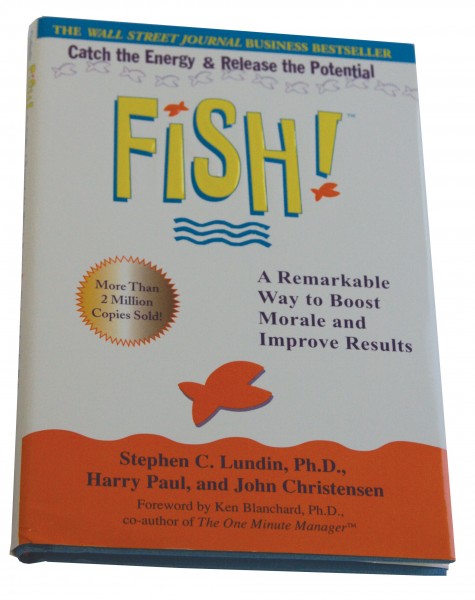 Barbara Scott Dawdy,
Barbara Scott Dawdy,
Stephens College
department chair of business and marketing, assistant professor
The foundation of my management philosophy began with my early studies of Drucker, Maslow and Senge, as well as other great leaders. But the business book I recommend most today, both personally and professionally, is “FISH!” by Dr. Stephen Lundin, which was inspired by the entertaining and inspiring film by Lundin, Harry Paul and John Christensen.
Many consider play to be the opposite of work; but the FISH! philosophy suggests that play is actually an important part of work. Play is what gives employees the freedom to innovate, solve problems in a positive way and, quite simply, enjoy their lives and jobs.
I worked as a marketing professional for 13 years before I began teaching. As vice president of sales and marketing, I worked on a team to use this text to energize our culture into a more playful, happy, caring and present workforce. I witnessed the transformational power of these ideas. Within a year, our company was voted Ingram’s magazine’s “Best Place to Work in Kansas City.”
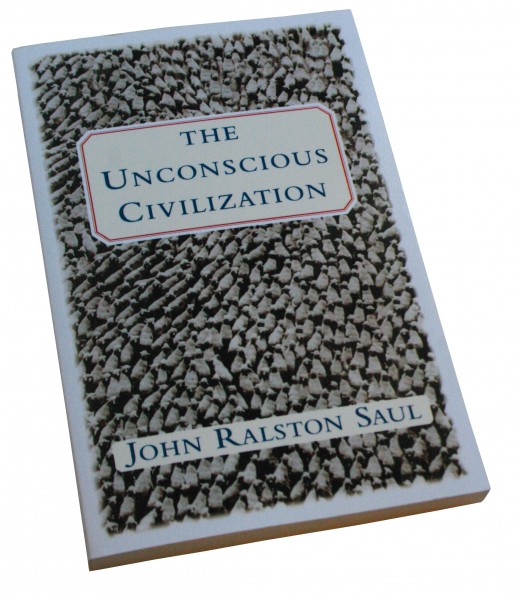 Dr. Steve Huenneke,
Dr. Steve Huenneke,
William Woods University
assistant professor of economics
In his book “The Unconscious Civilization,” John Ralston Saul says this about Socrates: “[He] was executed not for saying what things were or should be, but seeking practical indications of where some reasonable approximation of truth might be. He was executed not for his megalomania or grandiose propositions of certitudes, but for stubbornly doubting the absolute truths of others.”
In the same way, Saul respectfully, diligently and, yes, stubbornly doubts the common business and political wisdom of today. The result is one of the great books of either this century or last — a book that resonates in the era of a potential “lost decade” and Occupy Wall Street. He sheds light (ethical and critical wisdom), not heat (irresponsible, polarizing talk).
In short, democracy and individualism are slipping away. If we want these things back, we are going to have to pay the price, as others did centuries ago. The longer we wait, the higher the price. Saul writes: “The virtue of uncertainty is not a comfortable idea, but then a citizen-based democracy is built upon participation, which is the very expression of permanent discomfort. The corporatist system depends on the citizen’s desire for inner comfort. Equilibrium is dependent upon our recognition of reality, which is acceptance of permanent discomfort. The acceptance of psychic discomfort is the acceptance of consciousness.”
It doesn’t sound like a business book; but it is. The author is right on the mark when he says we are lost as we speak about grand values like ethics, democracy and liberty in the context of our current business and politics. “Re-fetching ourselves” would be difficult, but not impossible. Saul shows a way.
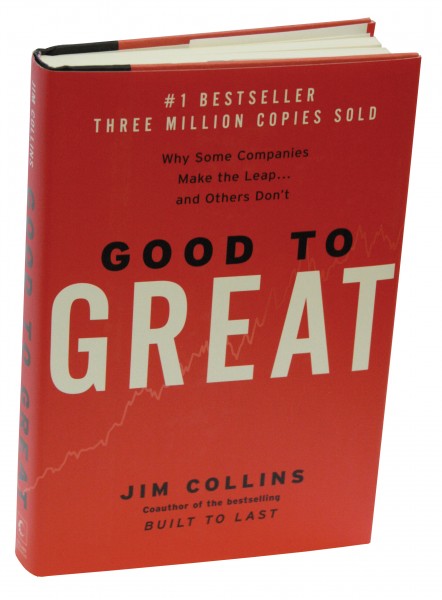 Brenda Popp,
Brenda Popp,
William Woods University
assistant professor of business and economics
Although “From Good to Great” by Jim Collins was published about five years ago, I still appreciate the way the author answers this question: Can a good company become a great company; and if so, how?
In times where the phrase “business ethics” is almost an oxymoron, Collins’ research found that CEOs who practice their ethics and honesty to the most minute of details lead the most successful and sustaining companies.
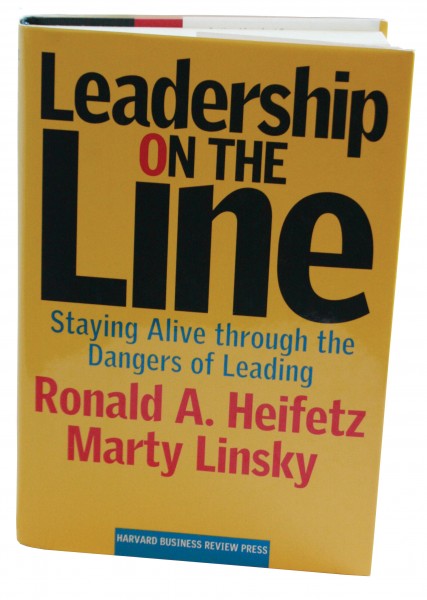 Dr. Sean Seibert,
Dr. Sean Seibert,
Columbia College
assistant professor of business administration
“Leadership on the Line: Staying Alive Through the Dangers of Leading,” is a book about real leadership, and those who have exercised real leadership will very much relate to the content.
As the authors Ronald Heifetz and Marty Linsky suggest: “Real leadership — the kind that surfaces conflict, challenges long-held beliefs and demands new ways of doing things — causes pain. And when people feel threatened, they take aim at the person pushing for change. As a result, leaders often get hurt both personally and professionally.”
The book reassures each of us that it is possible to put ourselves on the line, and helps us respond to the risks, so we can live to celebrate our efforts.
This is the book I used for the “one-read” program for the Leadership Columbia Class of 2011, and I will also be using it for the upcoming group. There are many books out there about leadership, but I know of none more realistic than this one. If you read it and effectively self-reflect upon it, the book can change your life.
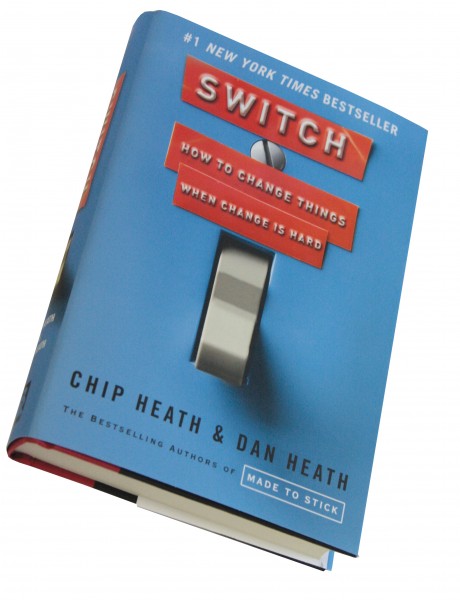 Daniel B. Turban,
Daniel B. Turban,
University of Missouri Trulaske College of Business
Stephen Furbacher professor in organizational change, department chairman in management
“Switch: How to Change Things When Change is Hard,” is a well-written book that is easy to read and provides considerable insight into how to change oneself, groups and even organizations.
The authors, Chip Heath and Dan Heath, do an excellent job of providing stories about change initiatives that work and integrating those stories with relevant research findings in an engaging manner.
They are also the authors of “Made to Stick,” another excellent book.


